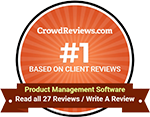
With Ecommerce becoming a gold mine, entrepreneurs don’t want to miss out on grabbing their share. Having options to choose from over 30 different platforms to kick-start their business, it can be overwhelming to come to a decision.
38% of the ecommercer platform market is dominated by Magento (8.12%) and WooCommerce (29.8%) together. WooCommerce is the most popular and fastest growing ecommerce platform, it has been downloaded 8,677,318 times. And now, more than 240,000 merchants use Magento.
How to know which platform is the best suit for you?
Magento and WooCommerce, both being open source are free to download and use. There’s significant backing from the community too. However, picking one of these depends on the kind of business you are planning to operate, what you goals are and how diverse your audience is. Let’s get started.
Products
It is crucial to consider whether you are selling physical or digital goods or both. Also, the number of products including the SKUs and variety impacs the speed of your online store. If you plan to sell a few hundred products that are not much complex in term of SKUs and variety, Woocommerce is a great choice otherwise go for Magento.
Type of business
Running a B2B or a B2C business also determines the choice of an ecommerce solution. For instance, WooCommerce does not work well for B2B businesses. Magento is a better option in this case. With B2c businesses, again, you need to look into various factors such as products, variety, categories etc…
Beginner/ Advanced
WooCommerce is a great option for someone who knows WordPress and wants to test ecommerce waters with a few products. Being a free plugin, it easily integrates with existing WP sites. However, if you want to build a serious medium to large sized online business, Magento is your go-to option. WooCommerce mainly meant for beginners.
Customizations
The need for up-selling and cross-selling opportunities, wanting a better control over inventory (in case of 10,000K+ products) or having advanced filter options for shipping, taxes and discount to deliver a better experience have a bearing on the platform you go for. Magento wins the battle if you are looking forward to full control over every aspect of your store.
Extensions/ Plugins
WooCommerce can turn costly because of the extensions. You can’t run a simple store with basic features to provide the best experience. Sooner or later, you need to inject extra features into your store. What might require an extension in WooCommerce might be a basic feature of Magento. Moreover, you also can find many Magento extensions on marketplace which will bring the addition features for your site.
Performance
The framework of WooCommerce including the back-end and front-end is designed in a way to suit for small sized businesses. Magento, on the other hand, is an advanced solution. Its framework is loaded with functionalities that are usually required by large businesses. So, site performance and speed can be an issue with Magento but it can be optimized.
The successful ecommerce stores that use Magento & WooCommerce
Magento: Nike, Olympus, Nicole Miller, Daddies…
WooCommerce: Entrepreneur bookstore, Keurig, Internet Archive, Blue star coffee roasters…
Source: multidots.com
Image: jeweltheme.com











Hey, I was searching for something just like this. I want to build an ecomerce like https://longboardsusa.com/collections/pintail-longboard
How can I build it? what advise could you give me?
Thanks.